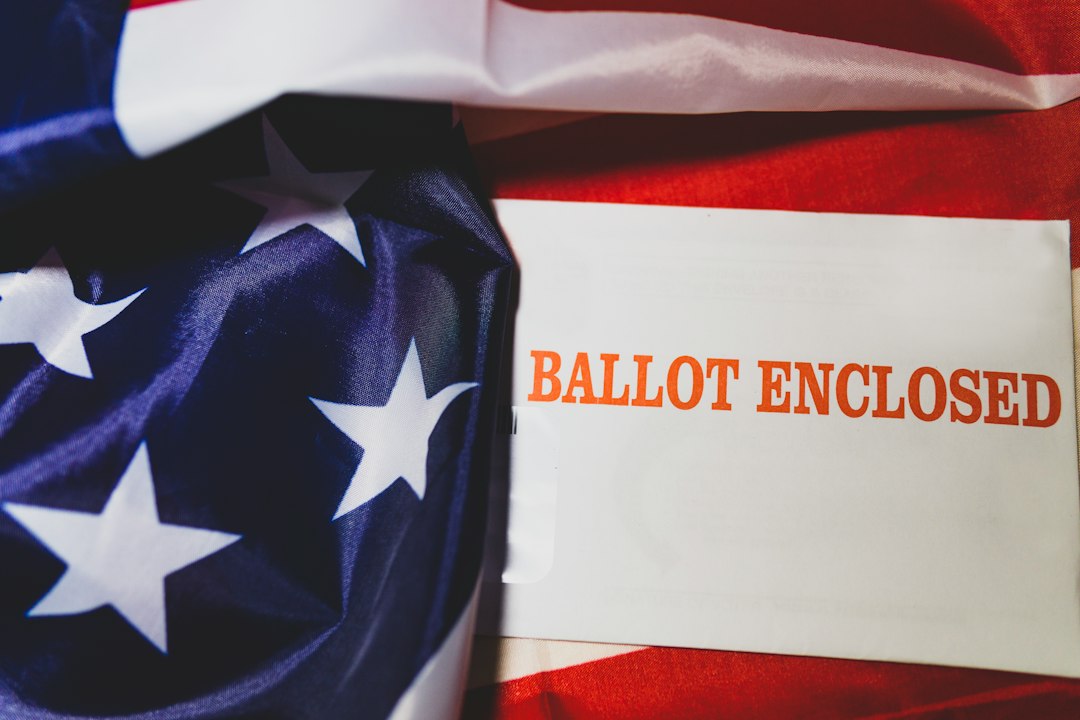Quick Answer to ‘Claims Dispute’:
– What It Is: A disagreement between you and your insurer over the coverage of your claim.
– Why It Happens: Differences in interpreting policy details, scope of damage, or cost of repairs.
– What To Do: Engage in negotiation, consider alternative dispute resolutions like mediation or appraisal, or seek professional help if necessary.
Dealing with damage to your commercial building or property can be stressful. The last thing you need is a dispute with your insurance company over the claim. We understand how crucial it is for property owners, real estate investors, and religious organizations to navigate these conflicts effectively. Your mission is to repair damage and resume operations as quickly as possible, not get bogged down in endless discussions and paperwork.
Understanding claims disputes and the importance of resolution are the first steps to overcoming this hurdle. Claims disputes often arise from confusion over policy terms, underestimation of damage by insurers, or disagreements about the cost of repairs. It’s not only about the money but also about the time and stress involved in settling these arguments.
The process might seem daunting, but knowing your rights and the path to resolution is empowering. Negotiation and alternative dispute resolution methods like appraisal or mediation can offer a way out without escalating to litigation. In some cases, professional help from a public adjuster could make a significant difference in reaching a fair and prompt settlement.

Understanding Claims Disputes
When you file an insurance claim, you might expect it to be straightforward: you report the loss, and the insurance company compensates you according to your policy. However, it’s not always that simple. Sometimes, you find yourself in a claims dispute.
Definition
A claims dispute arises when there’s a disagreement between you (the policyholder) and the insurance company about the details of your insurance claim. This could be about how much you’re entitled to, what damages should be covered, or even if the claim should be paid at all.
Common Causes
Several factors can lead to a dispute, including:
- Different Interpretations of Policy Language: Insurance policies can be complex and filled with jargon. You and the insurance company might interpret the same clause differently.
- Disagreement Over the Extent of Damages: You might believe the damage is more extensive than the insurance company’s assessment.
- Questioning of Proof: The insurer may require more evidence to prove the claim than what you’ve provided.
- Late Claims: Filing a claim after the deadline can lead to disputes over its validity.
Types of Disputes
Disputes can vary widely, but here are a few common types:
- Home Insurance Disputes: These can occur over the amount needed to repair or replace your home or belongings.
- Health Insurance Disputes: These often involve claims about medical procedures or treatments that the insurer refuses to cover.
- Car Insurance Disputes: Common after accidents, especially regarding the costs for repairs or disagreements about who was at fault.
- Denial of Claims: Sometimes, an insurer might deny a claim outright, leading to a dispute over the policy’s coverage.
Understanding these disputes is the first step towards resolving them. The goal is to reach an agreement that’s fair to both you and the insurer. In many cases, disputes arise from misunderstandings that can be cleared up with more information or negotiation.
If you find yourself in a claims dispute, it’s important to review your policy carefully, gather all relevant documentation, and communicate clearly and calmly with your insurance company. Sometimes, bringing in a professional such as a public adjuster can help navigate the complexities of the process and advocate on your behalf.
For more detailed information on handling a claims dispute, consider exploring resources like the UP Claim Help Library or consulting with a professional who specializes in insurance claims .
Next, we’ll dive into the steps you can take when your claim is disputed, offering practical advice and tips on how to navigate this challenging process.
Steps to Take When Your Claim is Disputed
When facing a claims dispute, it’s crucial to know the steps to effectively address and resolve the issue. A dispute can arise from disagreements over the claim amount, coverage denials, or misunderstandings of policy terms. Here’s how you can approach a claims dispute with confidence and clarity.
Internal Appeal
The first step is to request an internal appeal with your insurance company. This means asking them to review their decision to deny your claim or the settlement amount they’ve offered. It’s important to:
- Review your policy thoroughly to understand your coverage.
- Gather all necessary documents, such as repair estimates, medical bills, and any evidence of the damage or loss.
- Submit a detailed explanation of why you believe their decision was incorrect along with your evidence.
Insurance companies have a process for these reviews, and they must complete it within a specific timeframe, especially if the case is urgent.
External Review
If the internal appeal doesn’t lead to a satisfactory resolution, you have the right to seek an external review. This process involves an independent third party who will evaluate the dispute and make a decision. The insurer must comply with this decision, and it often can be the turning point in receiving a favorable outcome. Remember:
- The right to an external review is protected under law.
- This step can be crucial for cases where there’s a significant difference in the settlement amount or if coverage is denied entirely.
Filing a Complaint
Another critical step you can take is filing a complaint with your state’s insurance regulatory agency. This step is particularly relevant if you believe your insurer is not adhering to regulations or acting in bad faith. To file a complaint:
- Document your claim thoroughly, including all communications with the insurance company.
- Provide a clear and concise summary of the dispute, highlighting where you believe the insurer may have erred.
State agencies can offer assistance and, in some cases, mediate to find a resolution.
Negotiation Tips
Negotiating with your insurance company is both an art and a science. It requires preparation, patience, and persistence. Here are some tips to help you negotiate effectively:
- Be Prepared: Know your policy inside and out. Understand the specifics of your coverage and the details of your claim.
- Stay Professional: Keep all communications with your insurer professional and courteous. Emotions can run high during disputes, but it’s important to stay calm and focused.
- Document Everything: Keep detailed records of all interactions with your insurance company, including dates, names, and summaries of conversations.
- Seek Professional Help: If negotiations are stalling, consider hiring a professional, such as a public adjuster or an attorney specializing in insurance claims. They can provide expertise and leverage in negotiations.
Navigating a claims dispute can be challenging, but knowing these steps and approaching the process methodically can significantly increase your chances of a favorable outcome. You have rights as a policyholder, and there are resources available to support you through this process.
We will explore specific scenarios and tips for resolving claims disputes in various Texas cities, providing localized advice for those in the Lone Star State.
Resolving Claims Disclaims in Texas
Texas, known for its variable weather, often faces storms that can lead to significant property damage. Whether you’re in Austin, Dallas, Fort Worth, San Antonio, Houston, Lubbock, San Angelo, Waco, Round Rock, Georgetown, or Lakeway, knowing how to navigate the insurance claim process is crucial.
Texas Storm Damage: First Steps Post-Storm
After a storm, your first step should be to document the damage. Take photos, keep a log of the damage, and protect your property from further harm. Your insurance policy likely requires you to mitigate additional damage.
The Insurance Claim Process: Navigating Through
- File your claim as soon as possible. Early filing can sometimes lead to quicker resolution.
- Document everything. From conversations with your insurance agent to receipts for any repairs or temporary accommodations, keep a detailed record.
- Know your policy. Understand what your insurance covers and the limits of your coverage.
When Disputes Arise
Disputes can happen for many reasons. Maybe the insurance company’s settlement offer is too low, or they deny your claim based on their interpretation of your policy. Here’s how to tackle these disputes:
- Review your insurance policy again. Make sure you fully understand your coverage.
- Gather evidence. This includes your documentation of the damage, repair estimates, and any other relevant information.
- Communicate with your insurance company. Explain why you believe the settlement offer is inadequate or why the denial is unjust. Keep this communication clear and polite.
- Seek professional help if needed. Sometimes, the best way to resolve a dispute is with the assistance of a professional who knows the ins and outs of insurance policies and claims.
Professional Help: When to Consider It
There are times when hiring a professional, like those at Insurance Claim Recovery Support, can make a significant difference. They can navigate the complexities of the claim process, ensuring you receive a fair and prompt settlement. This is especially true in cases involving significant damage or complex disputes.
Remember: The goal is to resolve the dispute to your satisfaction, ensuring you’re fairly compensated for your losses.
In Texas, where weather can be as unpredictable as the outcome of an insurance claim, being prepared and understanding how to navigate the claim process is key. Whether you’re dealing with hail in Dallas or hurricane damage in Houston, the right approach and resources can help resolve your claims dispute effectively.
For more detailed guidance on handling specific types of storm damage or disputes, reaching out to professionals who have a deep understanding of Texas insurance laws and processes can be incredibly beneficial.
For additional resources and assistance, visit Insurance Claim Recovery Support for a complimentary insurance claim consultation.
As we continue to explore the complexities of insurance claims, the next section will delve into the tools and resources available to policyholders facing disputes, ensuring you’re equipped with the knowledge to protect your rights and property effectively.
Tools and Resources for Policyholders
Navigating through a claims dispute can feel like being lost in a maze. However, with the right tools and resources, finding your way becomes much easier. Let’s look at some valuable resources that can assist policyholders through the tumultuous journey of claims disputes.
UP Claim Help Library
The UP Claim Help Library is a treasure trove of information for anyone going through an insurance claim dispute. It offers guides, tips, and advice on various aspects of the claims process, including how to handle disputes over policy interpretation, causation, and fair market value. It’s a great starting point to understand the ins and outs of insurance claims.
NAIC Map
The National Association of Insurance Commissioners (NAIC) provides a map that directs you to your state’s insurance department. This is incredibly useful because insurance regulations vary by state, and knowing where to get state-specific information can make a big difference in how you handle your dispute.
Statutes of Limitations
Time is of the essence when it comes to insurance claims. Each state has its own statutes of limitations, which dictate how long you have to file a claim or dispute a decision. Being aware of these timelines is crucial to ensure you don’t miss your window to act.
Underinsurance Help
Discovering you’re underinsured only after a loss can be a harsh reality. The UP’s Underinsurance Help section provides resources and advice on how to tackle this situation, potentially saving you from significant financial strain.
Professional Help
Sometimes, the best course of action is to seek professional help. Insurance claims can involve complex legal and technical issues beyond the expertise of most policyholders. Hiring a professional, such as a public adjuster or an attorney specializing in insurance law, can level the playing field and significantly improve your chances of a favorable outcome.
Navigating a claims dispute can be daunting, but with these tools and resources, you’re better equipped to stand up for your rights and reach a fair resolution. Knowledge is power, especially when dealing with insurance companies.
Let’s explore alternative dispute resolution methods that might save you time, money, and stress in settling a claims dispute.
For further guidance and assistance, visit Insurance Claim Recovery Support for a complimentary insurance claim consultation.
Alternative Dispute Resolution Methods
When you’re up against a claims dispute, it’s like being in a dense forest without a map. The good news? There are multiple paths that can lead you out, each with its own set of tools and guides. Let’s break them down into simple terms.
Negotiation: Think of negotiation as having a conversation to find a middle ground. It’s you and the insurance company trying to settle the dispute without bringing anyone else into it. The pro here is saving money on hiring experts; the con is that it might not always get you the best deal, especially if you’re not familiar with insurance jargon and tactics.
Appraisal: If negotiation feels like talking, appraisal is like getting a referee for the monetary part of your dispute. Both you and the insurer pick an expert (appraiser), and if those two can’t agree, they bring in a third party. This can be a solid choice if the main issue is about how much money is on the table.
Mediation: Here, think of bringing in a neutral friend to help you and the insurance company find common ground. It’s less formal than court but involves a mediator to help both sides understand each other and reach an agreement. It’s quicker and usually cheaper than going to court but doesn’t have the power of a legal decision.
Litigation and Arbitration: Now, we’re stepping into the courtroom drama territory. Litigation is the full-blown legal process with a judge and possibly a jury. It’s public, can be expensive, and takes time. Arbitration is its less dramatic cousin, where a neutral arbitrator makes the decisions. It’s faster and cheaper than litigation, but the downside is that the decision is final and can sometimes favor insurers.
Hiring Professional Help: Imagine you’re not just lost in any forest but in one filled with legal terms, paperwork, and procedures. Sometimes, the best move is to hire a guide – a professional who knows the ins and outs. Whether it’s a lawyer, a public adjuster, or a claims consultant, professional help can often mean a better settlement outcome. The cost is a factor to consider, but their expertise can make all the difference.
Each method has its place, depending on the nature of your dispute, your resources, and how much time you can dedicate to the process. The goal is not just to get out of the forest but to reach a clearing that feels fair and just to you.
For more detailed advice tailored to your unique situation, don’t hesitate to reach out to Insurance Claim Recovery Support. Their expertise can be the compass you need in navigating the complex world of claims disputes.
Frequently Asked Questions about Claims Disputes
Navigating through the complexities of insurance can often lead to more questions than answers. Let’s simplify some of the most frequently asked questions about claims disputes.
What is a claim dispute?
A claim dispute arises when there’s a disagreement between you and your insurance company over the details of your insurance claim. This could be due to the amount offered for a settlement, a denial of the claim, or disagreements over what the policy covers.
What happens when an insurance claim is disputed?
When you dispute a claim, several steps are taken to review and possibly rectify the situation. Initially, you might go through an internal appeal, where your insurance company re-evaluates your claim. If the outcome is still not satisfactory, you could opt for an external review by an independent third party. Throughout this process, your aim is to provide evidence and arguments as to why your claim should be viewed differently.
What does it mean to contest a claim?
To contest a claim means to challenge the decision made by your insurance company regarding your claim. This could involve disputing the settlement amount, the coverage decision, or the claim denial. Contesting a claim usually involves a formal process of review and negotiation. It’s about advocating for what you believe is a fair evaluation of your situation based on your policy.
When you find yourself in a claims dispute, it’s crucial to gather all relevant documentation, such as photos, receipts, and any other evidence that supports your claim. Communicate clearly and keep detailed records of all interactions with your insurance company. And if you feel overwhelmed, consider seeking assistance from professionals like Insurance Claim Recovery Support, who specialize in navigating these waters.
It’s not just about getting out of the forest but ensuring the path you take is the right one for you. For those facing claims disputes in Texas or any other state, knowing your rights and the proper steps can make a significant difference in the outcome of your dispute.
For more detailed advice tailored to your unique situation, don’t hesitate to reach out to Insurance Claim Recovery Support. Their expertise can be the compass you need in navigating the complex world of claims disputes.
Conclusion
Navigating the maze of insurance claims, especially in the wake of Texas storm damage, can often feel like an uphill battle. But remember, you’re not alone. At Insurance Claim Recovery Support, we’re dedicated to standing by your side, guiding you through every step of the claims dispute process.
We understand how overwhelming it can feel when your claim is disputed. It’s not just about the financial reimbursement—it’s about rebuilding your life and moving forward after a loss. That’s why we take your trust in us seriously and commit to advocating for your best interests.
Our Promise to You
-
Expert Guidance: Our team brings years of experience in handling claims disputes across Texas, from Austin to Houston and beyond. We’re well-versed in the unique challenges that come with Texas storm damage claims.
-
Transparent Communication: We believe in keeping you informed throughout the entire process. No jargon, no confusion—just clear, straightforward updates and advice.
-
Maximized Claims: With our in-depth understanding of insurance policies and negotiation skills, we aim to ensure you receive the full compensation you’re entitled to.
-
Peace of Mind: Our goal is to alleviate the stress of dealing with insurance companies, allowing you to focus on what matters most—your recovery and well-being.
The journey to resolving a claims dispute doesn’t have to be traveled alone. Whether it’s fire, hail, hurricane, or flood damage, our team is here to support and guide you to a favorable resolution.
For more information on how we can assist you specifically with Texas storm damage claims, visit our loss types service page. Let’s work together to turn this challenging time into a story of resilience and recovery.
In conclusion, the key to navigating claims disputes successfully lies in understanding your rights, seeking professional guidance, and advocating for what you deserve. At Insurance Claim Recovery Support, we’re more than just your claims adjuster—we’re your partner in recovery. Together, we’ll work tirelessly to resolve your claims dispute, helping you reclaim not just your property, but your peace of mind.
Let’s rebuild, recover, and rise, together.









